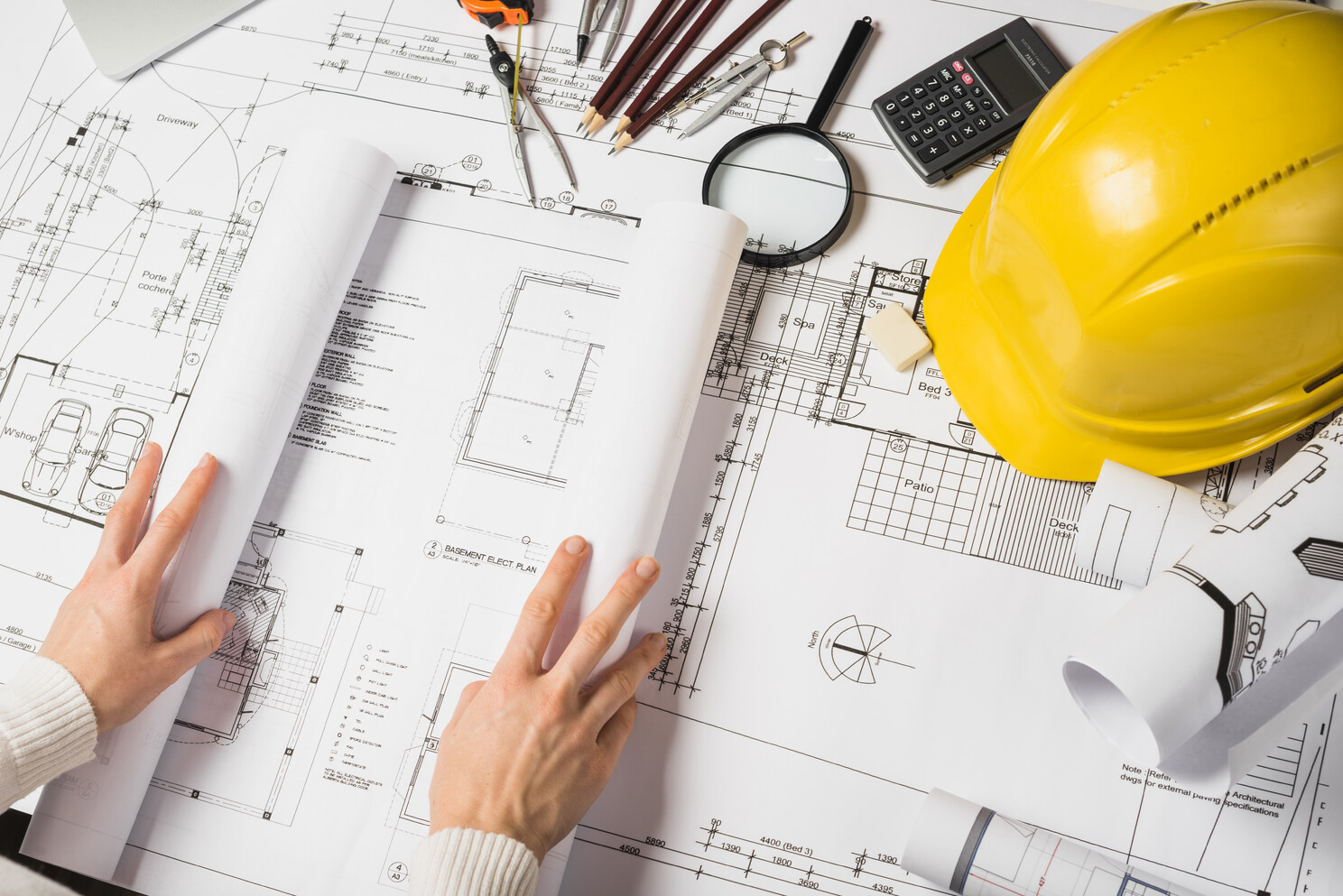Table of Contents
Quantitative surveying is the process of estimating, managing and controlling costs related to the construction or renovation of buildings. Quantity surveyors use their expertise in engineering, mathematics, and business management to confirm that projects are completed on budget. They work with architects, engineers, and contractors to provide accurate estimates of material and labor costs and track actual costs to ensure they stay within budget. A surveyor is a professional who is take care of surveying and evaluation of construction works. Quantity surveyors are the important persons` in the construction industry because they can accurately estimate the project cost. This information is used by clients, contractors and other stakeholders to make informed decisions about the project. Quantity surveyors also work with engineers and architects to ensure that the project design is feasible and within budget.
Get hands-on with our Quantity Surveyor course – sign up for a free demo!
Role of Architect
Architects have no enough knowledge about their roles and responsibilities in construction of building. The persons sometimes have confusion in their work with that of a civil engineer or builder, even though each profession has its own duties and responsibilities related to building and construction. For those who are unsure of the responsibilities of an architect in a construction project, this article provides the necessary information.
Duties and Responsibilities of an Architect in a Construction Project
1: What is the main purpose of a Bill of Quantities (BoQ)?
1. Provide counseling service(s) to clients
Architects also provide consulting and advisory services to help their clients to achieve the best results for their construction projects. We provide guidance on the proper steps to take on a construction site and recommend the best design options for your building. This ensures that our clients receive optimal results for their construction projects. Also, architects work with clients to discuss project goals and evaluate various design ideas to determine feasibility during the construction process of the building.
2. Draw design(s) for construction project(s)
Architects are responsible for creating designs for a variety of construction projects, including residential buildings, commercial buildings, and shopping centers. Their expertise lies in their ability to create elaborate and beautiful designs. Also, architects are ensure customizing designs to client specifications and give detailed knowledge about the pros and cons of various design options.
3. Design a building plan that fits all construction requirements
To designing a building construction project, architects are ensuring that the plans conform to the specific requirements and regulations of the state or local government where construction is done. These requirements may include building codes, fire safety regulations, typical architectural and construction style of the building site, and zoning standards.
4. Planning and developing the design
After finalize the construction drawings, the architect works with other professionals who work with construction industry to implement and refine the design. They are responsible for ensuring that important architectural elements such as plumbing, electrical systems, heating, ventilation, and structure are properly placed in a building.
5. Bringing artistic and creative elements to the construction
Architects are ensuring that a building is not only structurally sound, but also visually appealing. Architects creativity allows them to design buildings that go beyond traditional shapes to create remarkable structures. Architects role in building aesthetics is really important, as they can create really stunning structures that inspire and fascinate.
Master Quantity Surveying – Build a Rewarding Career Today!
Gain in-demand skills in cost estimation, project budgeting, and contract management with our Quantity Surveying Course. Learn from industry experts and boost your career in construction and infrastructure. Enroll now and take the first step toward success!
Know MoreQuantity Surveyor Roles & Responsibilities
Quantitative surveying is an important role in the construction field and the surveyor responsible for managing and controlling costs and contracts related to projects. A quantity surveyor is a professional who specializes in cost estimating, planning and managing construction projects. The importance of accurate cost estimating and planning cannot be overstated because, if not properly managed, costs can be significant and additional delays can occur.
In addition to cost control, quantity surveyors play an important role in risk management by identifying potential risks in the project and taking necessary precautions to mitigate them. We also estimate the cost of various resources required for the project and prepare tender documents, contracts, budgets and other documents.
To become a professional quantity surveyor, you must qualify from a recognized body such as the Royal Institute of Chartered Surveyors (RICS) or the Australian Institute of Quantity Surveyors (AIQS). Quantity surveyors are highly sought after and play a variety of roles in the construction industry.
Major roles of a Quantity Surveyor
- Assist in establishing clients requirements and undertake feasibility studies to ensure their proposals will work.
- Prepare and analyse the cost of tender.
- Analysing terms and conditions of the contract.
- Predicting potential risks in the project and taking precautions to mitigate such.
- Forecasting the costs of different resources needed for the project.
- Prepare tender documents, contracts, budgets and other documentation.
- Tender management including preparation of bills of quantities, contract conditions and assembly of tender documents.
- Contract management and contractual advice.
- Valuation of construction work.
- Claims and Dispute management.
- Life Cycle Cost analysis.
- Value Engineering.
- Timely payment to subcontractors, vendors, suppliers etc.
The Role Of Quantity Surveyors and Why Work With Them
Quantity surveyors, sometimes referred to as construction cost consultants or trade managers, play an important role in the UK construction industry and there are countless benefits for architects to work with them.
Quantity surveyors are primarily responsible for managing all contractual and financial aspects of construction projects. Their role is to ensure construction projects are completed within operating budgets. In fact, they can even help you with budgeting and fundraising.
As a UK architect, you will be working with a surveyor in some way, so you need to structure your collaboration with them as smartly as possible.
Benefits of Working With Quantity Surveyors
Ideally, a surveyor should be involved from the earliest stages of a construction project. During the planning and design phase, surveyors work closely with architects to understand design intent and provide cost advice.
These help prepare cost estimates and feasibility studies to determine the financial viability of the project. This includes cost analysis of materials, labor and equipment required for completion. Quantity surveyors also assess project risks and suggest cost control tactics.
QS assistance is required to prepare tender documents and contract documents such as invoices. QS ensures that the proposed design is within the project budget and recommends cost-effective alternatives where necessary.
During the construction phase, quantity surveyors are also invaluable as they control and monitor project costs. Regular expense reports, change orders, final account settlement and negotiation, contract management – you can expect all of this from an experienced QS.
Quantity surveyors also play an important role in managing disputes between parties involved in a project.
If you are serious about using sustainable materials and techniques, a quantity surveyor can advise you on their cost implications and help balance your desire for sustainable design with your available budget.
Start a rewarding career in Quantity Surveying! Book for Free Demo Classes Here!
Master Quantity Surveying – Build a Rewarding Career Today!
Gain in-demand skills in cost estimation, project budgeting, and contract management with our Quantity Surveying Course. Learn from industry experts and boost your career in construction and infrastructure. Enroll now and take the first step toward success!
Know MoreSome Advantages of Quantity Surveyors
- Before development begins, a professional quantity surveyor can advise the client on the feasibility and viability of the proposed investment or development. We at Rautenbach Enssle Quantity Surveyors (REQS) can fully assist our clients with the financial feasibility studies required for bank financing. In this regard, we also consider the available income streams and the available capital of the customer based on the aforementioned feasibility and recommend the best financial scenario to the customer for optimal decision making.
- A qualified quantity surveyor with expertise in the construction industry will be able to accurately measure the building work and give further advice on the same materials, labor and equipment required for the project. Therefore, we can provide clients with more accurate construction cost estimates and final costs than those provided by contractors alone.
- The bidding/tendering process can begin once the process of providing an approved conceptual cost estimate is completed and the bidding/tendering process begins. QS is responsible for the complete preparation of tender/tender documents. The bill includes all relevant bidding/tendering documents such as construction contracts, project drawings, specifications, etc. This allows quantity surveyors to access and compare all bids submitted and advise clients to determine the most reliable bidder by providing financial advice after completing the review process.
- The quantity surveyor will ensure that all guarantees and insurances are in place along with the signing of the preferred construction contract, reducing the risk to the client in the event of any on-site incident, particularly damage to adjacent land or public property. During the construction period, PrQS are consultants specializing in construction contracts who provide complete advice to their clients before bidding for the project.
- A monthly assessment is carried out by a qualified quantity surveyor assigned to the project based on the work carried out by the contractor on site to date. This reduces the risk of additional costs from the employer if the contractor performs incorrect work on site.
- Quantity surveyors manage the overall project budget and ensure that it is completed within budget. This is done by monitoring and reporting on all financial aspects of progress throughout the life of the project (from start to finish) and advising the client on the best course of action. QS regularly checks with customers.
- Quantity surveyors provide feedback on the financial feasibility of a project at the planning stage before work begins on site. This process allows quantity surveyors to anticipate potential problems and cost overruns before they occur, proactively avoiding risks to the budget and helping clients achieve their desired return on investment.
- Quantity surveyors not only ensure that projects stay within budget, but also ensure that their clients get the full value of their investment by ensuring that contractors complete all work on time. All funds obtained and allocated to projects are fully utilized. Set industry standards for approved scope of work, superior specifications and workmanship. You can receive a payment certificate only if the completed work is at the agreed quality level according to the signed construction contract.
- The surveying profession is inherently fair, as all financial expenses must be substantiated with factual information. QS are therefore mediators, expert witnesses and comprehensive dispute resolution experts. Therefore, you must ensure that all project disputes are handled quickly and efficiently without slowing down progress on site.
How To Align Your Vision With a Quality Surveyor’s Expertise
To get the most out of your collaboration with quantitative surveyors, follow these practice-based best practices.
Start early & communicate clearly
To align the architect’s vision and the surveyor’s expertise, it is important to establish clear communication channels from the beginning.
Hold regular meetings and effective visioning workshops, use appropriate collaborative software, and ensure that all parties have a mutual understanding of project goals and constraints.
Define roles & respect them
To maximize the effectiveness of a partnership, the roles and responsibilities of each party must be understood and clearly defined.
As architects, we must understand the role of quantity surveyors in cost control, feasibility studies and risk analysis and fully delegate this authority to them.
At the same time, quantity surveyors must respect your creative process, vision, and design goals, so consider their approach and mindset when vetting partners.
It is important to build strong working relationships based on trust and mutual respect. This is done by recognizing each other’s expertise, accepting feedback, and working together to solve problems and conflicts.
Use the right tools
By using the right technology, you can get the most return on investment from your cooperation with surveyors.
Project management software is one of the most effective digital tools for collaboration. Platforms like PlanMan, Basecamp, and Asana can help you manage tasks, deadlines, and communication between architects and surveyors.
Digital communication tools such as Slack, Microsoft Teams, PlanMan, and Zoom can also enhance collaboration. Real-time communication and virtual meetings are especially useful when team members work remotely or in different geographic locations.
Building Information Modeling (BIM) is another powerful digital tool that can improve collaboration between architects and surveyors. BIM allows you to create accurate 3D models of buildings that can be used to accurately estimate costs and materials. BIM reduces errors and discrepancies and provides a clear understanding of the project for both parties.
Learn together
Continuous learning and professional development help architects and surveyors stay up to date with industry trends and best practices. This can lead to more innovative solutions and improved collaboration. And innovation is what moves the growth needle in the construction business.
As a result, quantity surveyors play an important role in the construction industry, ensuring that projects run on budget and are completed on time. With expertise in cost management and risk mitigation, they reduce costs, ensure contract compliance, and ultimately contribute to the success of construction projects.
Become a skilled Quantity Surveyor and excel in your career! Free Demo Classes Here!
Master Quantity Surveying – Build a Rewarding Career Today!
Gain in-demand skills in cost estimation, project budgeting, and contract management with our Quantity Surveying Course. Learn from industry experts and boost your career in construction and infrastructure. Enroll now and take the first step toward success!
Know MoreFrequently Asked Questions
What is the duties of quantity surveyor and architect?
It is the Quantity Surveyor’s duty to measure and value work carried out during the period in question, together with the value of any variations which may have been authorized, and to submit to the Architect or Engineer a recommendation regarding a payment on account.
Is surveying important for architects?
What are the benefits of using a quantity surveyor?
Quantity surveyors will manage the overall project budget to ensure that it is completed within budget. They do this by monitoring and reporting on all financial aspects of a project’s progress throughout its duration (from start to finish) by advising the client on the best course of action.
What is the relationship between quantity surveyor and architect?
Quantity Surveyors join a project early on, reviewing architects’ plans and building schematics in order to total the cost of materials and labour in advance of any construction.

























